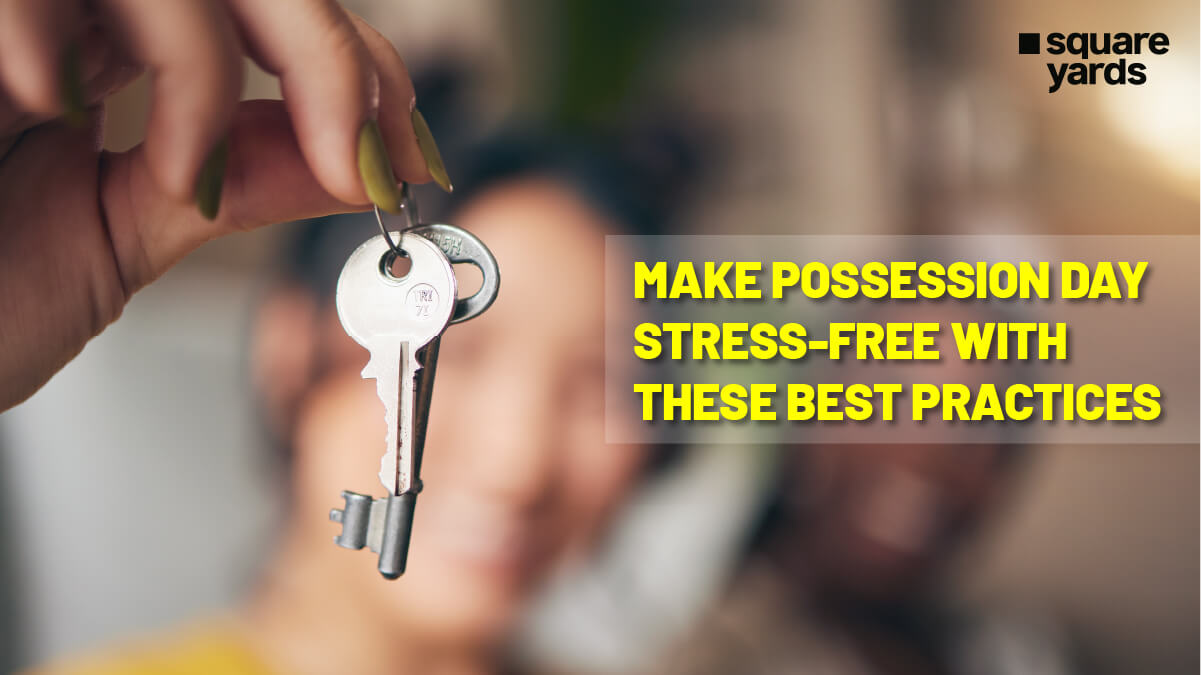People visualise and create their dreams from their homes. It is a safe space for everything one dreams of becoming or doing. When you’ve taken the significant step of becoming your own boss by starting a business, ensure not to let any mistakes undermine all your hard work. A home based business insurance is the first step you need to take after establishing your enterprise from your residence. With no one to overlook operations but you, anything can get out of hand easily. A simple coffee spill can become your biggest nightmare, and a water leak might destroy hours of work. While you still have to worry about the operations, let your insurance policy take care of the rest and provide you with a sense of relief and calm.
The ABCs of Home-Based Business Insurance
Home-based business insurance will save you and your company from going bankrupt! Like any other insurance plan, it provides financial protection against undesirable circumstances. It also covers unforeseen injuries in a place of residence used to run a company. According to the Canada Revenue Agency, small businesses are the backbone of the Canadian economy, representing 97.9% of the country’s overall organisations. Due to COVID and the huge support of the government via various policies, many residents have started small businesses from their official residencies. These include web design firms, photographers, online sales and food caterers.
These businesses run with the help of expensive tools, books, instruments and employees. Some businesses even deal directly with the customers in the business owner’s residence, like in-home salons. This highlights the need to safeguard each resource, client, and business idea. Business owners also need to be protected from legal lawsuits and possible injuries or deaths that might occur inside the home. A home-based business insurance policy will cover all of the above and much more, protecting your interests and money in case of damage or theft. Each business owner pays a small monthly or yearly premium and chooses the appropriate insurance plan to reap the highest benefit in adverse situations.
Home-Based Business Insurance: A Crucial Investment for Entrepreneurs

Most home-based entrepreneurs believe that their house insurance will also cover their loss of business property. This insurance, usually purchased while moving into a new home, mostly covers all personal expenses but will not protect the owner in times of need. A standard home insurance policy covers about $2,500 in case of damage to business-related tools. This means you will not get the full amount of damaged goods in case of fire or theft. The insurance also covers only a limited amount of products within the agreed-upon price range. Thus, certain expensive or cheap raw materials will not be covered. The policy will also not cover all the areas of the house, such as a detached shed or guest room. Thus, it becomes crucial for every entrepreneur to buy home-based business insurance to safeguard their interests.
Here are some additional key reasons to consider buying home-based insurance :
Saving Equipment and Inventory
Business inventory and equipment are the most important elements of any home-based organisation. They are essential, expensive, and take significant time to replace or repair. Home-based business insurance provides financial protection as you work to recover your business smoothly after setbacks.
Mitigate Liability and Risks Associated with the Business
A home-based insurance plan protects entrepreneurs from liability claims in case of an injury or death inside the office or home. Suppose a buyer or third party gets injured or faces a loss after being associated with your business. In that case, you can save yourself from the big financial liability of hospitals or legal fees.
Boost Business Image and Enhance Credibility
Clients and third parties feel much safer after working with credible businesses with insurance plans. This makes the company look more credible and legitimate, reflecting its business operations style. Buyers will also prefer an insured business over an uninsured one, as the latter won’t cover unforeseen circumstances, such as slipping on the floor.
Financial Stability in Times of Disruption
Some business operations and orders, such as a bakery with fast-perishing goods, can always continue. Home-based business insurance can help recover costs quickly in case of a natural disaster or unexpected disruptions like electricity cuts. This symbolises financial stability and gives the business owner a sense of relief to move on to the next customers.
Protection from Legal Battles
A business dealing with goods and services is meant to make some kind of error, omission, or negligence at any time. It can end up costing the entrepreneur hefty legal fees or late charges. Home-based business insurance can save the organisation’s reputation by covering those costs and ensuring low settlement rates.
Options for Home-Based Business Insurance Coverage
Any business run from a home or apartment will have different raw materials and labour requirements based on the goods and services provided. For example, a photographer will have expensive home equipment, while a masseuse will require more employees and area size. Based on these metrics, insurers can choose any coverage options, with various recovery modes and safeguarding different elements of the business.
Standard Home Business Policy
A standard insurance plan suits organisations with a lot of foot traffic, such as suppliers who regularly visit the office. This plan covers basic liabilities within a given price range and protects you from third-party charges.
Endorsements to Homeowner’s Policy
Part-time business owners or freelancers who don’t have much inventory can take advantage of the Endorsements to Homeowner’s Policy. This is a much more economical coverage plan that can be customised based on the low amount of equipment and certain aspects of the business, like adding a clause for customer dissatisfaction. Most customers prefer this home-based business insurance plan as it can be added to the pre-existing insurance as an add-on facility.
In-Home Business or Commercial Home Policy
An in-house business policy is well-suited for mid-sized home organisations that hire many employees and can face the issue of data breaches. This insurance’s coverage limit is much higher than the average and requires slightly higher premium rates based on the data equipment the company owns. The policy might even cover some off-site events and injuries caused by the company’s manufactured products.
Workers Compensation Insurance
Many home-run businesses don’t have many materials but hire employees to run small service centres, like tutoring or pet sitting. Workers’ compensation insurance, mandatory in some states, can safeguard you and your employees from any injury or accident. This can include medical expenses like hospital visits, disability benefits from injury caused during work, paying a portion of an employee’s salary after a traumatic incident and even physical therapy.
Cyber Liability Insurance
Many home-based businesses currently deal with clients online and provide digital services like e-mail copywriting and graphic design. These companies hold vast quantities of their own and clients’ data, which are vulnerable to hacking or misuse. Cyber liability insurance can protect this kind of organisation from lawsuits and digital disruptions. Based on customer demand, this home-based business insurance can cover credit monitoring and notification costs after an unexpected loss.
Key Qualifications for Securing Home-Based Business Insurance
Home-based business insurance has low criteria and can be easily obtained after submitting some documents to any private or public agency. But before you go forward with home-based business insurance, ensure your organisation does not qualify for a commercial insurance policy. This policy will register your home as a company, covering various services and providing large-scale returns.
Also, ensure you live in a villa or apartment, not a separate condo, as you might have to check your condo insurance policy. Here are the basic criteria which can help you qualify for a home insurance policy:
-
- Your business needs to be owned or operated by family members living at the point of residence.
- You cannot run other organisations or operate off-the-books while working for the insured business.
- You must include the name of the business and the owner’s name in the policy.
- The office address must be used as a point of residence for the business owner.
- The business must be registered under a sole proprietor or spouses acting as partners.
- The business income must not exceed CAD 250,000.
- The official residence must be the only place used to meet customers.
- The owners are prohibited from running or selling their business services or products outside Canada, as doing so increases the overall risk.
- Businesses should refrain from importing foreign products and then repackaging the physical goods.
- No separate office will be used to run the organisation.
Home-based business insurance is not legally mandatory but is highly recommended for entrepreneurs. Entrepreneurs can use insurance as proof to get certain tax deductibles on facilities such as heating, electricity, and home insurance.
How Much Does Home-Based Business Insurance Cost?

According to sources, general liability insurance can cost as little as $11 per month, while a professional liability clause starts at around $19. Business owners can also save this hassle by adding an endorsement to their preexisting home insurance policy. It will barely cost $25 to $50 and will cover many issues, offering the highest returns possible.
Factors deciding the exact cost of your insurance premium (monthly or yearly) include:
-
- History of Claims: If you have made multiple claims in your home insurance policy in the past 3 to 5 years, the cost of the business insurance might be higher and vice versa.
- In-home clients: If you offer services or goods requiring you to bring in many customers in the home, your liability cost might be higher than that of other organisations.
- Business Property: Expensive business properties, such as computers, inventory and equipment, might increase your premium costs due to increased liability.
- Products or Services Offered: A business dealing with harmful goods (chemicals or dyes) or high-risk online services can increase the risk of lawsuits, thus causing costly insurance premiums.
- Location of business: If the business is run from a neighbourhood at risk of criminal activities or natural disasters, the premium cost will rise accordingly.
- Number of Employees: A business with multiple employees can increase the risk of tripping, injuries, and even accidental death, raising insurance premiums.
- Security Systems: A home with multiple security measures, like fire alarms and suppression systems, suggests low insurance claims rates, reducing the premium cost.
Insurance Options Beyond Home-Based Business Insurance
Running a business from home might seem enticing, but it carries many risks that one might encounter at any moment. The risks grow along with the size of the business and the list of employees. This growth looks good on paper but produces unexpected troubles and financial constraints. A normal home-based business insurance might not cover some liabilities and property damages, creating the need to purchase extra coverage plans.
Most household business owners expect their home insurance to pay out sudden business losses in case of any tragic event or purchase an endorsement plan for their pre-existing home insurance. When this outgrows, the entrepreneurs are expected to purchase a proper commercial policy.
This offers protection against several risks at a lower business insurance cost. Some of them are:
-
- Having many employees
- Significant loss of stock
- International transactions
- Unsuccessful market transactions
Here are some of the large coverage options available to business owners:
Product Liability Insurance
If a business deals with end-product goods, product liability insurance is necessary. This coverage protects business owners from lawsuits for injuries caused by the products. The agency will cover any legal fees or financial losses in case of legal action. The insurance is also responsible for a product failing to meet its safety or quality standards.
Commercial Auto Insurance
If you use a vehicle to make deliveries post-production, your normal car insurance or home-based business insurance provider won’t cover any damages. You will have to buy separate insurance for the commercial vehicle, which can then be used for client meetings, visits, or any other business-related activity.
Umbrella Insurance
Umbrella insurance provides coverage beyond any policy limits. It is like a safety net when the other policies have reached their end term or are not delivering expected returns. Most of these policies are extremely cost-effective, reducing the business insurance cost and saving the owner from any personal liability claim. Insurance can also enhance your business’ image in front of clients and make the owner look well-prepared for any circumstances.
Business Interruption Policy
A business running from a single location with all its resources stored in a single shed might be dangerous. A dangerous incident or natural disaster might damage every last bit of the company’s resources. This home-based business insurance policy helps compensate for the cost of all the materials and guides the rebuilding process.
Directors and Officers Insurance
A director’s and officer’s insurance policy protects the personal assets of any home-based organisation in case of a legal dispute. It also protects the company’s directors if a vendor, competitor, or customer sues them. The insurance also helps cover defence costs and damages received post wrongful allegations.
Things to Consider Before Buying Insurance for Your Home-Based Business

Here is a list of things you must evaluate before purchasing home-based business insurance from any private agency –
Risks Associated with Your Business
Understand the risks associated with your business, such as a personal liability policy for a skin-care business, so that you can choose the plan accordingly. Small-scale businesses have few employees and might not require large claim plans.
Determining the Overall Coverage Need
Based on the risk assessment, product type, and delivery channel, you can choose the perfect coverage plan suited for you. For example, if you run a graphic design firm solo, you might need cyber liability insurance instead of a general liability one.
Business Growth Opportunities
Some small-scale businesses, like online tutoring, will not need expansion and are perfectly well-suited to a small area. This means you will not have to worry about extra coverage plans and will require a standard home insurance policy.
Check Policy Limits and Deductibles
Ensure that the home-based business insurance plan you have chosen can cover all the potential losses and will be able to provide you with higher returns. Also, check the monthly deductibles so you don’t have to worry about unexpected financial losses.
Note the Policy Exclusions
Some agencies might trick you into paying higher premiums for low-coverage plans. Check the policy exclusions before agreeing upon a yearly amount.
Compare Quotes from Different Agencies
Always compare multiple firms’ premium costs and coverage plans, as you might miss out on higher expected returns. Also, look out for insurers with experience in dealing with home or commercial businesses, as they might better understand your needs.
Review the Policy Annually
Insurers must check the coverage plans annually and make any desirable changes. This will provide the entrepreneur with a sense of relief in an ever-changing market and allow them to analyse the business insurance cost.
Insure Your Hustle, Ignite Your Success
In conclusion, the right home-based insurance plan can save every entrepreneur from risk or damage. The insurance is a financial safety net and an attractive company feature, making it credible. Customers must choose their coverage plan for their business safely after assessing every risk and comparing multiple agent quotes. Remember, it only takes one wrong step to destroy everything you have worked hard for and hundreds of right decisions, such as choosing the right insurance plan, to make your company successful.
Frequently Asked Questions (FAQs)
Yes, home-based business insurance covers many liabilities of the organisation and even pays for multiple financial losses, such as legal fees. It won’t, however, cover any home-related liability, such as a bathroom leakage.
No, a piece of business equipment will not be covered if it's stolen/ damaged in your car. You will have to buy a separate commercial policy or commercial auto insurance.
Not disclosing your home as a business to your insurance will null and void your insurance policy. This means that no business equipment will be covered in case of any damage.
If you are providing professional advice services to clients, like a lawyer or doctor, you must buy errors and omissions insurance. This is also known as Professional Liability Insurance and does not make you liable for anything you say in front of the client.
Yes, your mortgage prices will increase after buying a home-based business insurance.
You can buy home-based business insurance as a remote or hybrid employee, but it is not legally mandatory. Does home-based business insurance offer more liability coverage?
Is my home business equipment covered when it’s in my car?
What about any business equipment if I haven’t declared my home business?
Do I need “errors and omissions” insurance?
Will my home-based business affect my mortgage?
Do I need business insurance as an employee?



































